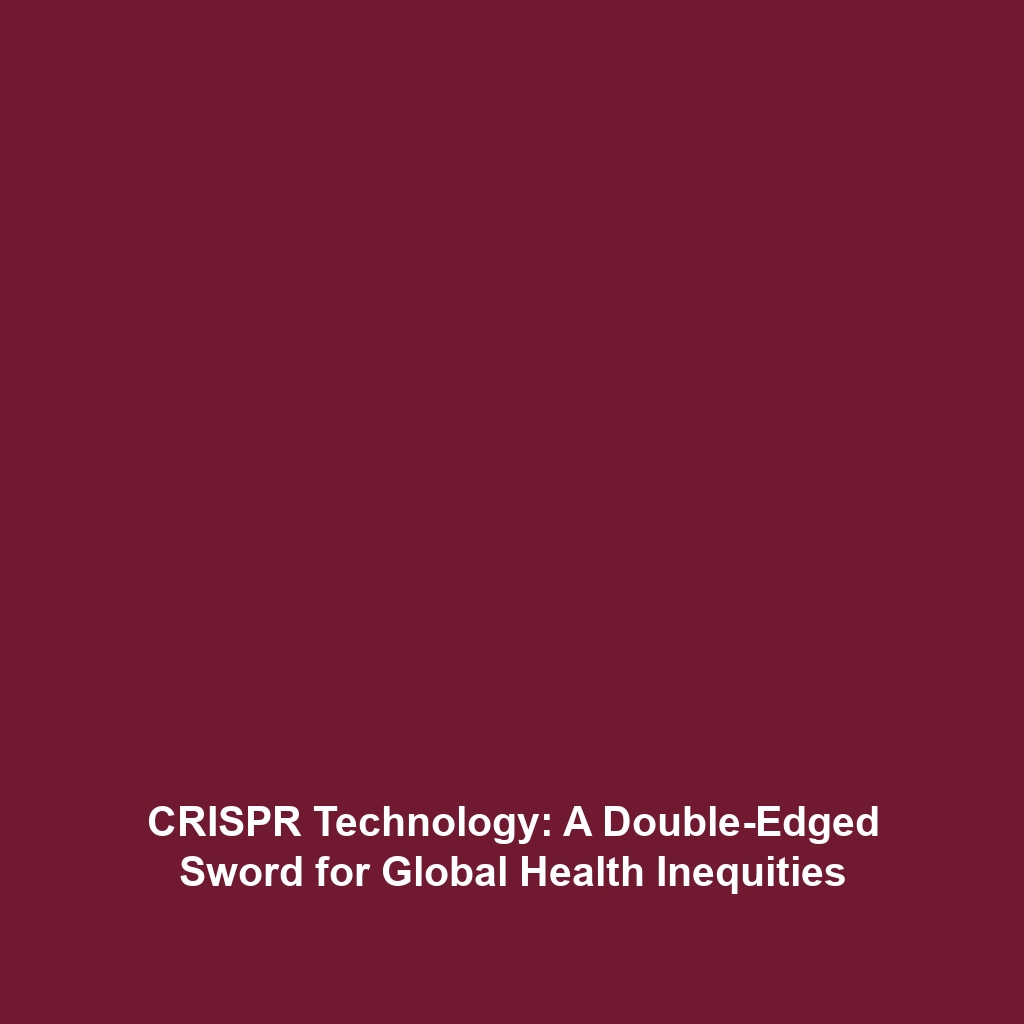The Potential for CRISPR to Widen Health Inequities Between Rich and Poor Countries
Introduction
The emergence of CRISPR gene editing has revolutionized the field of molecular biology, offering unprecedented opportunities for medical advancements. However, alongside these innovations lies a pressing concern: the potential for CRISPR to widen health inequities between rich and poor countries. This issue highlights the socioeconomic disparities that may arise as nations navigate the complex landscape of gene editing technologies. As CRISPR becomes integral to healthcare and treatment options, addressing the implications for global health equity is critical.
Key Concepts
Understanding the implications of CRISPR gene editing in a global context requires a familiarity with key concepts:
- Gene Editing: A technology that allows scientists to alter an organism’s DNA, leading to potential treatments for genetic disorders.
- Health Inequities: Disparities in health status and healthcare access that are avoidable and stem from systemic inequalities.
- Global Health Context: The ways in which health issues can transcend national boundaries, emphasizing the importance of equitable access to medical technologies.
Applications and Real-World Uses
The applications of CRISPR gene editing in medical research and healthcare are vast. However, the potential for these innovations to exacerbate health inequities manifests in several ways:
- Targeted Therapy in Wealthy Nations: Advanced CRISPR therapies may primarily be accessible in high-income countries, leaving low-income nations at a disadvantage.
- Research Opportunities: Pharmaceutical companies may prioritize research in affluent markets, reducing the development of treatments for diseases prevalent in poorer regions.
- Intellectual Property Issues: Patent disputes and licensing barriers could limit access to CRISPR technologies in low-resource settings.
Current Challenges
There are numerous challenges related to the potential for CRISPR to widen health inequities, which include:
- Infrastructure Deficiencies: Many developing nations lack the necessary infrastructure for advanced genetic research and medical applications.
- Cost Barriers: The high cost of CRISPR technology and associated therapies may restrict access for poorer populations.
- Research Funding: Limited investment in health innovation in lower-income countries hampers local research efforts.
Future Research and Innovations
Future research holds promise for addressing these inequities. Key areas of exploration and innovation include:
- Global Collaboration: Initiatives that foster partnerships between wealthier nations and low-income countries to share technologies and knowledge.
- Open-Source Technologies: Developing accessible CRISPR tools that can be utilized globally, regardless of economic status.
- Policy Advocacy: Efforts to influence policy for equitable distribution of gene editing technologies and treatments.
Conclusion
Addressing the potential for CRISPR to widen health inequities is essential as this groundbreaking technology becomes more integrated into global healthcare. Ensuring that advancements in CRISPR gene editing benefit all countries, regardless of economic status, is a pressing challenge that requires collaborative efforts. Explore more about global health disparities and the latest CRISPR innovations to understand how we can work toward equitable health solutions.
